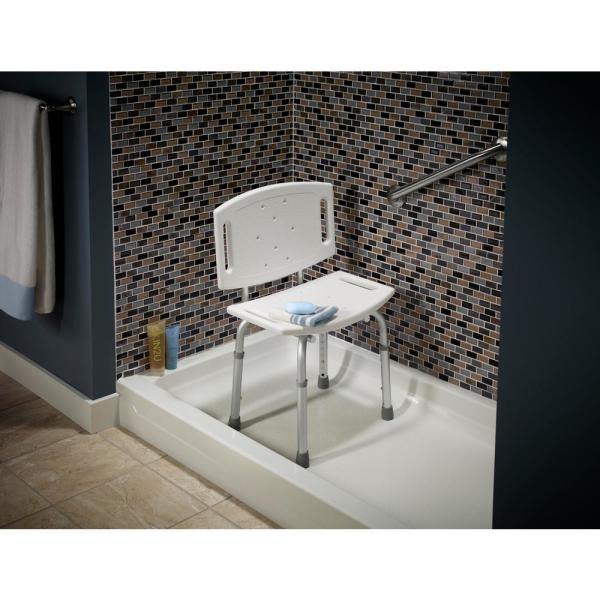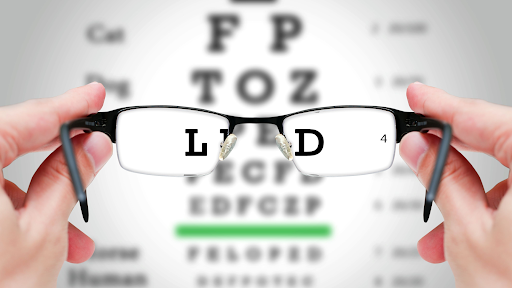10 Tips to Help Seniors Lower Their Fall Risk
One in four Americans aged 65+ falls each year. Falls are the leading cause of fatal injury in older adults and the most common cause of trauma-related hospital admissions among seniors.
Nursing fall prevention interventions are vital in keeping seniors safe and healthy, so check out these 10 fall prevention tips to incorporate into your lifestyle.
1. Keep in touch with your doctor
As we age, we become more at risk for certain illnesses and accidents. Adults over the age of 65 should have a physical exam with their primary care doctor at least once a year.
Make a list of all medications you take regularly, both prescription and over the counter. Some medications may have side effects like drowsiness, which can increase your chance of falling. Your doctor may decide to wean you off of medications that make you tired or affect your thinking.
If you have fallen in the past, describe to your doctor in detail how the fall happened. Your doctor may be able to identify specific fall-prevention strategies that will work for you.
2. Wear non-slip shoes
If your home does not have carpet in every room, consider buying a pair of non-slip shoes to wear around the house. Many house slippers are made with a rubber sole to effectively grip the floor, lowering the risk of falling.
Relive Those Lost Memories With Social Distance Activities
Check your closet to see what kind of soles your current slippers have. If the sole is not made of a rubbery material, you should discontinue wearing them until you can buy new ones.
It can also be dangerous to walk around the house barefoot or with just socks. Socks are unable to grip floors, which makes them incredibly dangerous on stairs. Going barefoot is a little bit safer than wearing socks, but walking on sweaty feet or slick floors can be unpredictable.
3. Improve shower safety
Falling in the bathroom has the highest risk for hospitalization in older adults. Luckily, there are plenty of solutions that do not require a total bathroom remodel.
No matter the size of your shower, installing shower safety bars greatly reduces the chance of falling in the shower. Many seniors also choose to add a shower bench so they are able to sit down if needed. Non-skid mats are very easy to add to your shower and will keep your feet sturdily on the ground.

4. Safer staircases
Stair missteps and slips are some of the leading causes of upper and lower-extremity injuries for seniors. The slightest wrong movement going up or down the stairs can lead to serious injuries.
If you have lived in the same home for years, you may not even look down at the stairs as you travel them. It is critical that you pay attention to each step before you set your foot on it, and increasing the lighting in the stairway can be very helpful.
Installing non-slip stair treads will reduce the risk of falling or losing your footing. If you have carpeted stairs, make sure that the carpeting is not loose.
5. Install night lights
The older we get, the more we wake up in the middle of the night to use the bathroom. Installing night lights in hallways and bathrooms will increase the visibility without having to turn on overhead lights and interrupting someone else’s sleep.
Installing nightlights are cheap and easy nursing fall prevention interventions that can be used anywhere in the home.
6. Tidy up your home
No matter what footwear you have on or what surface your flooring is, you are at risk of tripping if there are unnecessary objects on the floor.
Remove any boxes, cords, and newspapers from high-traffic areas around your home so you can move around without being obstructed. If any water, oil, grease, or debris falls, clean it up immediately before you step in it.
7. Conduct balance and stability exercises
With your doctor’s OK, consider doing light exercises to improve your balance and stability. Yoga exercises are great nursing fall prevention interventions because they can be done at your own pace and do not include weights.
Simply taking a stroll around your neighborhood can also increase your stability, but be sure to watch where you are going and be aware of the ground surface.
8. Have your eyesight and hearing tested regularly
Small changes in sight and hearing can make you feel disoriented and off-balance. If you wear glasses or contact lenses, it is important to have regular eye exams in case your prescription needs to be changed for clear vision.
If you wear hearing aids, always make sure the batteries are alive, and that they are fitted properly.

9. Utilize senior home care services
If you live alone and feel unsafe doing everyday activities because of fall risk, senior home care services can come into your home to help you. Through education of fall prevention tips, exercising, and mobility help, senior home care services can help you keep your independence while being safe.
Senior home care services are especially helpful when recovering from a fall to prevent further injury.
10. Always remain vigilant
Nobody wants to live in fear, especially in your own home where you should feel safe and comfortable. No matter what task you are doing, be aware of your surroundings.
If you have an established routine, make sure that you do not zone out when moving around your home. The more you practice being vigilant, it will become part of your routine and you will not have to actively think about it.
The bottom line
The slightest slip and fall can lead to serious health problems and injuries, so it is essential that you incorporate these fall prevention tips into your everyday life. Needing help around your home is nothing to be ashamed of, and some of these simple solutions could save your life.
24/7 Nursing Care’s senior home care services are available to assist you in incorporating these fall prevention tips into your life.


